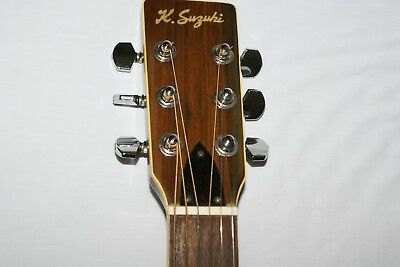

The Suzuki sustain pedal didn't seem as smooth as the others. I thought it was easily on par with the Samick and probably better, with the exception of the pedals. It was way better than the Kimball I played. A friend had an older cheap (chinese?) grand that sounded really bad. It looked, felt and sounded impressive to me. I didnt like the small Kimball grand at all. Then I realized the cheap piano was $14,000. I thought The Boston was a cheap brand, but I liked it best. I have played used Yamahas, a Boston, Kawais, a Samick, a Baldwin, and a Kimball side by side. I loved it, learned so much and sent it to a new home. The Roland ($6,000+ new) is amazing, but the $600 Casio was a perfect purchase. I started last year with a Casio PX770, but I recently bought a used Roland RM-700.

You could get in cheap, play it some and buy something else later if you wanted. If you were starting to play banjo, I would say it was perfect for you. It was awesome for the money, but a $500 banjo isn't where I'm at. Still, it was a cheap novelty, so I sold it. Workmanship, finish, and materials were not premium but were passable and the desired design was there. I once bought a new Flint Hill Chinese Mastertone style banjo for $500! Banjo people hated them.After some setup I could have played it on stage. A $4K banjo was better than the $15K banjo. The $200 banjo was different from the standard design. I've had many banjos ranging from $200 to $15,000. Have you played the piano? Do you like it?
#Suzuki Acoustic Guitar Serial Numbers professional
I believe that a good bench regulation from square 1, including the back action, and a professional voicing would help, but that is a substantial cost of labor that I would generally not out into a Suzuki. The issues begin at materials quality, move onto the execution at the factory, and end with the fact that most of these pianos sold were given little prep. If you are looking at a piano from that perspective, then there is no problem.īut, if you are looking for a piano that can perform musically, hold up over time, has an even feel for a piano tuner so it can accept a tuning, etc. IOW, when the key went down, it made a noise. What is wrong with this piano is that it comes from the end of an era when the goal of the manufacturer was to make a piano that worked - period. It was done on an OEM basis and was contracted to the most reasonable bidder (I assume. I have seen Suzuki acoustic pianos at NAMM (they displayed there once, to my knowledge) and one or two in the home of customers. Ed, how many Suzuki grands have you seen? What wasn't well made? What was wrong with the sound quality?


 0 kommentar(er)
0 kommentar(er)
